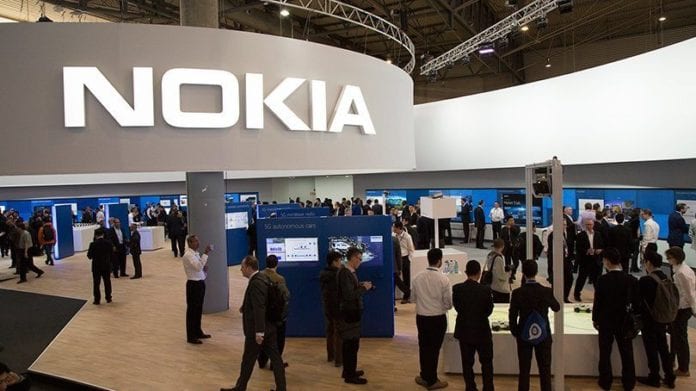Nokia, AT&T, Sprint, and multiple European carriers won’t be at MWC 2020
The list of companies bailing out of Mobile World Congress Barcelona over coronavirus fears continues to get longer, with an ever-growing number of marquee names. In the past 24 hours, network equipment giant Nokia has joined Ericsson in cancelling its participation, and network operators AT&T and Sprint have confirmed to media outlets that they won’t be going to what is traditionally the telecom industry’s largest event of the year.
Reuters also reported this morning that French telecom operator Orange, whose CEO Stephane Richard is chairman of the GSMA, plans to pull out of the event; and that the U.K.’s BT and Germany’s Deutsche Telekom are also cancelling. Bloomberg called the event “all but dead” in the wake of the most recent wave of cancellations and cited anonymous sources saying that an announcement from the GSMA on whether it will still hold the event could come as soon as today. Earlier reports had said that the GSMA was expected to hold a pre-event meeting on Friday where a decision would be made.
Executives from Nokia, AT&T Business, NTT DoCoMo and Orange were among the headliners slated to speak at some of the show’s keynote addresses, whose companies have reportedly cancelled.
Facebook, Cisco, Sony, Intel, Accedian, Amazon, CommScope, F5 Networks, InterDigital, MediaTek and LG are among the companies whose cancellations have already been reported.
The cancellations by major European operators and equipment vendors may push the event over the edge. Nearly 65% of last year’s attendees were from Europe, according to the figures from the GSMA. No official word has yet come from Spain’s Telefonica, the predominant operator in the conference’s host country, which is slated to have a long list of speaking engagements at MWC.
In a statement, Nokia said it has been “carefully monitoring the situation … with the goal of making a fact-based decision. … We have taken the necessary time to evaluate a fast-moving situation, engage with the GSMA and other stakeholders, regularly consult external experts and authorities, and plan to manage risks based on a wide range of scenarios.
“The conclusion of that process is that we believe the prudent decision is to cancel our participation at Mobile World Congress,” the vendor said, adding that in lieu of attending the show, it will hold a series of “Nokia Live” events to showcase the launches and demos that had been planned for MWC. Ericsson is taking a similar tack with local market events.
The GSMA has thus far declined to comment on its internal decision-making in regards to MWC going forward. Several news sources have reported that the GSMA may need a declaration of a health emergency by Barcelona officials in order to have its insurance pay the hefty costs associated with cancelling the event.
But Barcelona health and government officials have emphasized their readiness and clearly want the event, which generates hundreds of millions of dollars in economic activity for the city, to move forward. It’s also hard to argue that there is currently a coronavirus health emergency in Barcelona itself. While around 40 cases of the newly named COVID-19 virus have been confirmed across nine European countries, Spain has only two confirmed cases. Both occurred on Spanish islands: one in popular vacation spot Mallorca, off the Spanish coast, and another another involving a German tourist in the Canary Islands near the north African coast, which is a Spanish autonomous community.
Coronavirus cases have largely been confined to China and in particular to the Hubei province, where it is believed to have originated in Wuhan. The virus has infected nearly 45,000 people and killed more than 1,000, according to the most recent available figures.
Under restrictions put in place by the GSMA, travelers from Hubei province will not be allowed to attend MWC, and all travelers who have been in China will “need to demonstrate proof they have been outside of China 14 days prior to the event.” The GSMA also will have temperature screenings in place, and attendees “will need to self-certify they have not been in contact with anyone infected.” The organization is instituting a microphone disinfecting-and-change protocol for all speakers, as well as increasing disinfection of high-traffic touch-points such as entrances and exits, catering areas, handrails and WCs and doubling its on-site medical support.
The virus is thought to spread through droplets in the air from coughs and sneezes, with close contact (within six feet) of an infected person considered risky, although there are also emerging concerns that it may be capable of airborne transmission as well. The extent to which it spreads from via contacted with common surfaces is not yet known.
According to the GSMA, nearly 110,000 people attending last year’s show, and around 10% of those were from network operators. While 2019 attendees hailed from more than 200 countries and territories, the vast majority—64%—were from Europe, with 16% coming from the Asia-Pacific region (including between 5,000-6,000 from China, the GSMA has said) and 10% coming from the United States.

